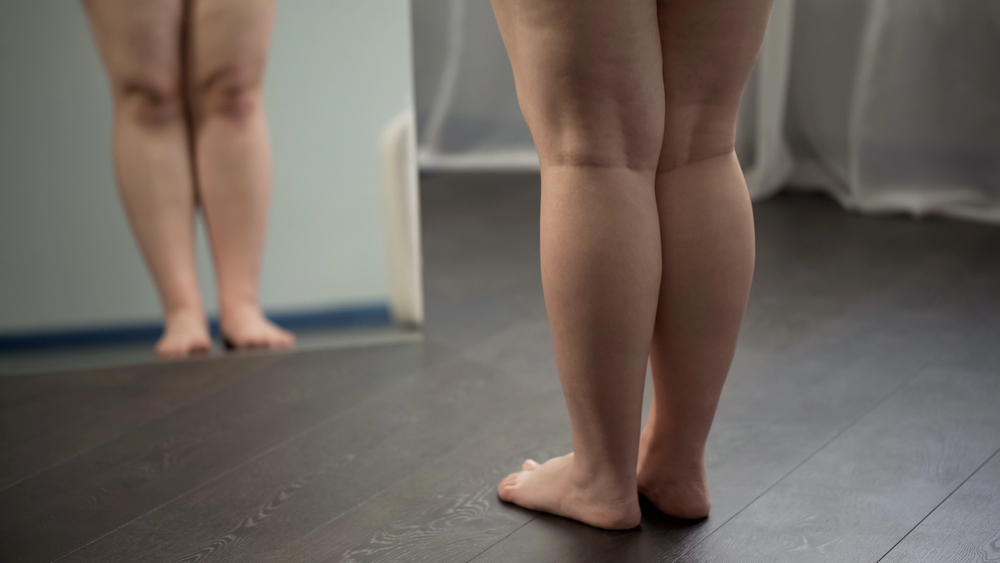Eating disorders are complex, often misunderstood conditions that can affect anyone, regardless of age, gender, or background. For many people, eating disorder symptoms start subtly and escalate over time. The earlier you recognize these warning signs, the sooner you or a loved one can seek support, and the better the chances of lasting recovery.
At NewCircle, we understand that noticing the signs of an eating disorder can lead to early detection, which can help those with eating disorders receive the treatment they need sooner rather than later. This guide breaks down 10 critical early warning signs of eating disorders, so you can take the first step toward compassion, clarity, and healing.

Understanding Eating Disorder Symptoms
Why Early Recognition Matters
Eating disorder symptoms don’t always appear overnight. They often develop gradually, making them easy to dismiss as harmless habits at first. But the longer these behaviors go unaddressed, the more serious the emotional, physical, and mental health effects can become.
Eating disorders can impact every aspect of a person’s well-being. They may contribute to malnutrition, heart health complications, or ongoing psychological challenges. Recognizing early signs and offering gentle support may help prevent complications and open a path toward recovery.
According to the National Institute of Mental Health, nearly 9 percent of the U.S. population will experience an eating disorder in their lifetime.
Who Is at Risk?
The truth is that eating disorders can affect anyone.
- All genders
- Ages 13 and above
- LGBTQIA+ individuals
- People with co-occurring conditions such as anxiety, depression, or substance use concerns
Eating disorders do not discriminate based on body type, appearance, or lifestyle. Recognizing this helps break stigma and encourages early, inclusive support.
10 Early Warning Signs of an Eating Disorder
If you’re wondering whether you or someone you care about may be living with an eating disorder, here are 10 early eating disorder symptoms to look for. While each sign may seem minor on its own, together they can indicate a deeper concern that requires compassionate and specialized intervention.
1. Drastic Changes in Eating Habits
Skipping meals, avoiding favorite foods, or becoming rigid about eating routines may indicate disordered patterns. It’s not just about dieting; it’s about how food begins to control daily life.
2. Preoccupation with Body Weight, Shape, or Size
Spending excessive time thinking about appearance, frequently checking the mirror, or expressing deep dissatisfaction with body image are common signs. This may also include negative self-talk or comparing oneself to others.
3. Extreme Mood Swings
People experiencing eating disorder symptoms may feel heightened anxiety, irritability, or sadness, especially around food or body-related topics. These emotional shifts often signal internal conflict.
4. Excessive Exercise or Compulsive Movement
Exercising even when sick or injured, or feeling guilty for missing a workout, may be a way of coping with emotional distress. Movement becomes a form of control rather than enjoyment.
5. Physical Symptoms of Nutritional Deficiency
As eating disorders progress, the body may show signs of imbalance. Some symptoms to look for include:
- Fatigue
- Dizziness
- Hair thinning
- Dry skin
- Digestive discomfort, like bloating or constipation
For more information on physical symptoms, the Mayo Clinic offers additional insights into the medical impact of eating disorders.
6. Isolation from Friends and Family
Social withdrawal can be an early signal of disordered eating, particularly when gatherings involve food. The person may distance themselves to avoid questions, attention, or feelings of shame.
7. Secretive Behavior Around Food
Eating alone, hiding food, or leaving the table quickly after meals can indicate discomfort or secrecy. Some people may binge or restrict in private, making these behaviors difficult to detect.
8. Obsession with Food Content or Nutrition Labels
Being overly focused on calories, macros, or ingredients can shift from a wellness habit to an anxiety-driven compulsion. This level of fixation often reflects emotional distress beneath the surface.
9. Unexplained Weight Fluctuations
Sudden weight changes that don’t have a clear medical explanation can point to changes in eating or exercise patterns. However, it’s important to remember that eating disorders affect people across all body sizes. The focus should remain on behavior and mental health, not appearance.
10. Physical Signs of Self-Harm or Substance Use
Eating disorders may co-occur with other coping strategies like substance use or self-harm. These can be ways of managing overwhelming emotions or unresolved trauma and deserve compassionate intervention.

When Should You Seek Help for Eating Disorder Symptoms?
Trust Your Instincts
If you’re noticing multiple signs or feeling uneasy about your habits or those of someone you care about, it’s time to begin the conversation. You don’t have to wait for things to get worse.
Speaking with a mental health provider or reaching out to a specialized eating disorder treatment center is an empowering first step toward healing.
Treatment Options for Eating Disorders
At NewCircle, we offer compassionate, personalized care for eating disorders and related conditions. Our programs are built around inclusion, affirmation, and evidence-informed practices.
Our treatment options include:
- Residential Treatment (30 to 90 days)
- Partial Hospitalization Program (PHP): 5 days a week, 6 hours per day
- Intensive Outpatient Program (IOP): 6 days a week, 3 hours per day
We also provide discharge planning and alumni support to help clients transition smoothly back into daily life.
Our approach includes:
- Care for all genders, including LGBTQIA+ individuals, from the age of 13 and over.
- Holistic modalities such as movement therapy, art therapy, and therapeutic experiences with service dogs
- A hands-on educational kitchen that helps clients practice real-world food exposure in a safe, affirming space
- A focus on connection and community rather than weight, appearance, or numbers
We believe healing happens when individuals feel safe, accepted, and supported as their full selves.
Frequently Asked Questions
1. What are some early warning signs of an eating disorder?
Early signs include changes in eating habits, preoccupation with body image, social withdrawal, mood swings, excessive exercise, and physical symptoms like fatigue or digestive issues. These behaviors often develop gradually.
2. Are eating disorders only diagnosed when someone is underweight?
No. Eating disorders affect individuals across all body sizes. While weight is a diagnostic factor for some disorders, diagnosis is primarily based on behaviors, thoughts, emotional distress, and the impact of these on daily living.
3. How can I tell the difference between healthy eating and disordered eating?
Disordered eating often involves rigidity, secrecy, guilt, or emotional distress around food. When eating habits interfere with mental or physical health, it may be time to seek support.
4. Who is most at risk of developing an eating disorder?
Anyone can develop an eating disorder, regardless of age, gender, race, or background. Risk may be higher among individuals with anxiety, depression, trauma, or perfectionistic tendencies. LGBTQIA+ youth are also disproportionately affected.
5. What does treatment at NewCircle look like?
NewCircle offers individualized care through residential, PHP, and IOP programs for individuals aged 13 and older. Our holistic approach includes therapy, experiential modalities like art and movement, and affirming support for co-occurring mental health needs.
Start the Journey Toward Healing Today
If you’re noticing early eating disorder symptoms in yourself or someone you care about, remember this: recovery is possible, and no one has to go through it alone.
The path to healing begins with a single step. Whether you’re looking for more information or ready to explore care options, our team at NewCircle is here to walk beside you.
Contact us today to learn how NewCircle can help you or your loved one find hope, healing, and lasting transformation.
